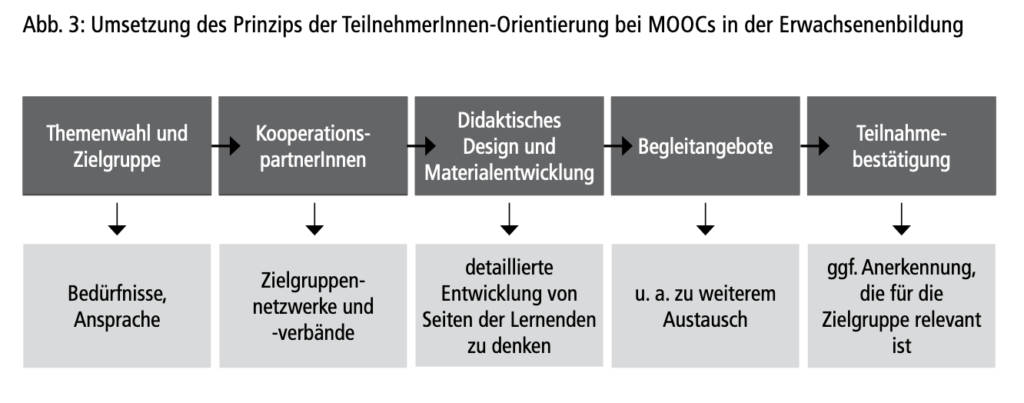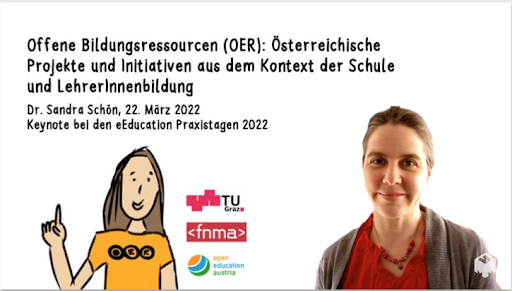Wir haben für die GMW 2021 Konferenz einen Beitrag gemacht zu „Strategien zu offenen Bildungsressourcen an österreichischen öffentlichen UniversitätenEine Beschreibung von nationalen Strategien, Whitepapers und Projekten sowie eine Analyse der aktuellen Leistungsvereinbarungen“. Die Idee war einmal darzustellen wie bei unseren Hochschulen das Thema OER strategisch abgebildet sind und welche Maßnahmen auf dem Weg dorthin geholfen haben.
Zusammenfassung:
Im Beitrag werden zunächst die österreichischen Strategien mit Bezug zu OER und den öffentlichen Universitäten sowie wichtige Initiativen beschrieben. Vor diesem Hintergrund wird die Auswertung der aktuellen Leistungsvereinbarungen der 22 öffentlichen Universitäten im Hinblick auf die Nennung von OER-Aktivitäten beschrieben. Damit wird aufgezeigt, dass 9 der 22 Universitäten konkrete OER-Vorhaben planen, drei weitere OER zumindest thematisieren. Zwei Universitäten haben bereits 2020 eine OER-Policy vorgelegt, weitere sind zeitnah zu erwarten. Die vorgelegte Beschreibung und Auswertung kann dabei als ein Beitrag zur in der UNESCO-Empfehlung zu OER (2019) gewünschten Entwicklung von Monitoring-Verfahren zu OER gesehen werden.
Referenz: Edelsbrunner, S., Ebner, M., Schön, S. (2021) Strategien zu offenen Bildungsressourcen an österreichischen öffentlichen UniversitätenEine Beschreibung von nationalen Strategien, Whitepapers und Projekten sowie eine Analyse der aktuellen Leistungsvereinbarungen. In:Heinz-Werner Wollersheim, Marios Karapanos, Norbert Pengel (Hrsg.), Bildung in der digitalen Transformation, Tagungsband der GMW 2021, Waxmann, S. 31-36.



